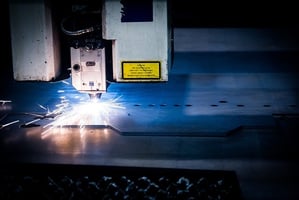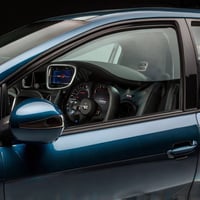The laser cutting machine market in 2024 is a testament to how precision and innovation can drive...
The Connected Car Market in 2024: Driving Towards a Smarter Future
As we cruise through 2024, the automotive industry is experiencing a profound transformation, spearheaded by the rise of connected cars. These vehicles, equipped with internet connectivity and advanced sensors, are not just modes of transport but smart devices on wheels. The connected car market is set to expand rapidly, fueled by technological advancements, consumer demand for enhanced driving experiences, and the push towards safer, more efficient transportation systems.

Technological Advancements Fueling Growth
The backbone of the connected car market is the integration of cutting-edge technologies. In 2024, 5G connectivity is playing a pivotal role, offering high-speed, low-latency communication that allows vehicles to interact with each other and the surrounding infrastructure in real-time. This facilitates everything from real-time traffic updates to advanced driver-assistance systems (ADAS) that can significantly reduce the likelihood of accidents.
Artificial Intelligence (AI) and Machine Learning (ML) are also critical. These technologies enable predictive maintenance, personalized in-car experiences, and improved navigation systems. For instance, AI can analyze driving patterns and suggest optimal routes, while ML can help predict and mitigate potential vehicle failures before they occur, enhancing vehicle longevity and reliability.
Consumer Demand and Enhanced Driving Experiences
Today's consumers expect more from their vehicles than just transportation. They desire seamless connectivity and enhanced driving experiences, which connected cars deliver. Features like in-car Wi-Fi, advanced infotainment systems, and voice-activated controls are becoming standard, transforming the car into an extension of the home or office.
Safety is another significant driver of consumer demand. Connected cars are equipped with features like automatic emergency braking, lane-keeping assistance, and adaptive cruise control, which not only make driving more comfortable but also significantly safer. These advancements are particularly appealing to younger, tech-savvy drivers who prioritize safety and connectivity.
The Push Towards Safer, More Efficient Transportation
Government regulations and initiatives worldwide are accelerating the adoption of connected car technologies. In many regions, stringent safety standards are being implemented, pushing automakers to incorporate advanced safety features into their vehicles. Additionally, there is a growing emphasis on reducing traffic congestion and emissions, which connected cars can help address through improved traffic management and more efficient driving practices.
Challenges and Opportunities
Despite the promising outlook, the connected car market faces several challenges. Cybersecurity is a primary concern, as increased connectivity opens up vehicles to potential hacking and data breaches. Ensuring robust security measures is paramount to gaining consumer trust and widespread adoption.
Data privacy is another issue. Connected cars generate vast amounts of data, raising questions about who owns this data and how it is used. Regulators and automakers must work together to establish clear guidelines and policies to protect consumer privacy.
On the flip side, these challenges present opportunities for innovation. Companies specializing in cybersecurity and data privacy solutions are in high demand, creating new avenues for growth within the industry.
For More Info: - https://www.gmiresearch.com/report/global-connected-car-market/
The Road Ahead
Looking ahead, the connected car market is poised for substantial growth. As technology continues to evolve and consumer demand for smarter, safer vehicles increases, the automotive industry will undergo significant changes. The journey towards a fully connected, autonomous future is well underway, promising a smarter, more efficient, and safer driving experience for all.
In 2024, the connected car is not just a vision of the future; it is a reality that is transforming the way we drive, interact, and live.


